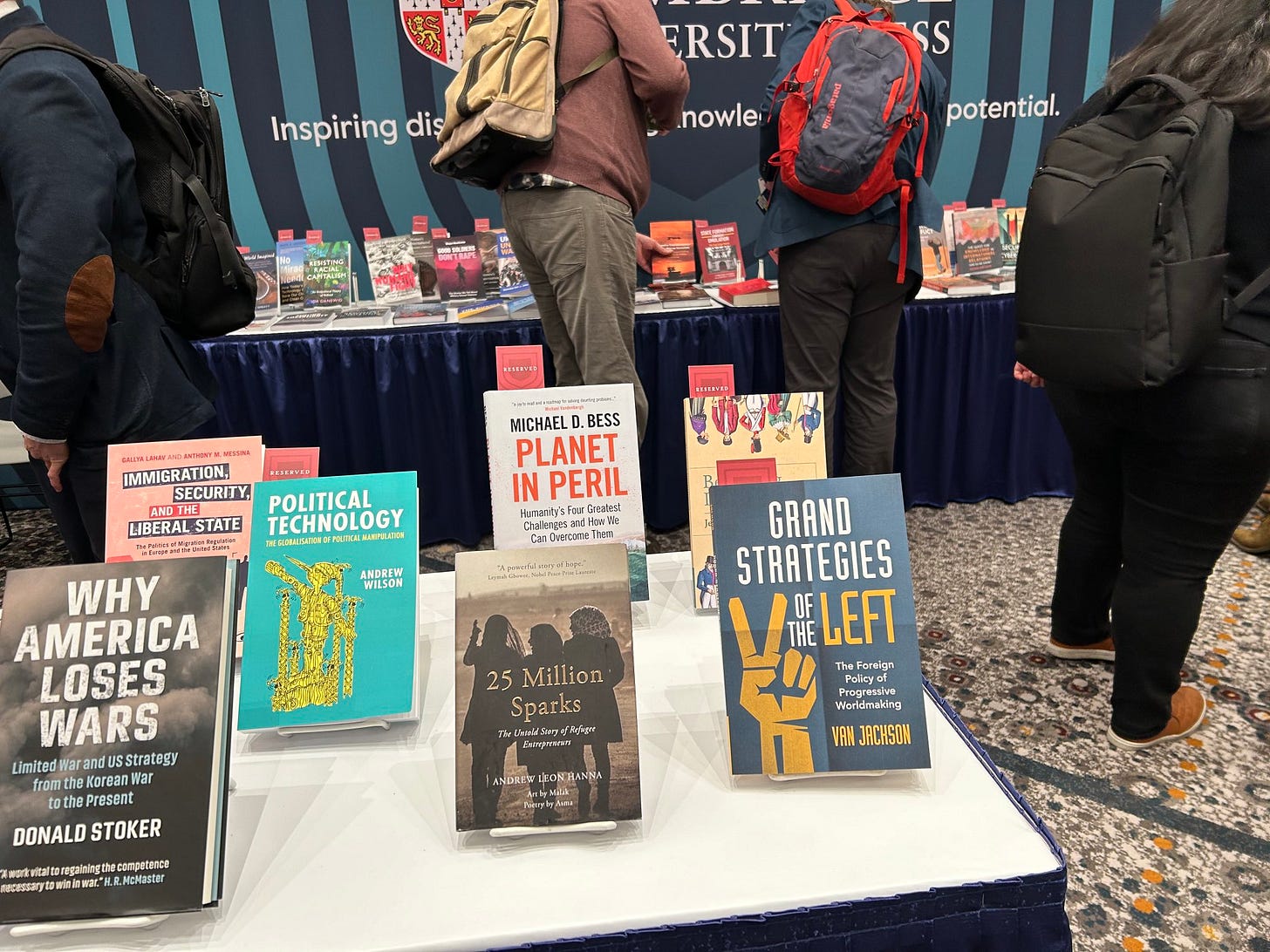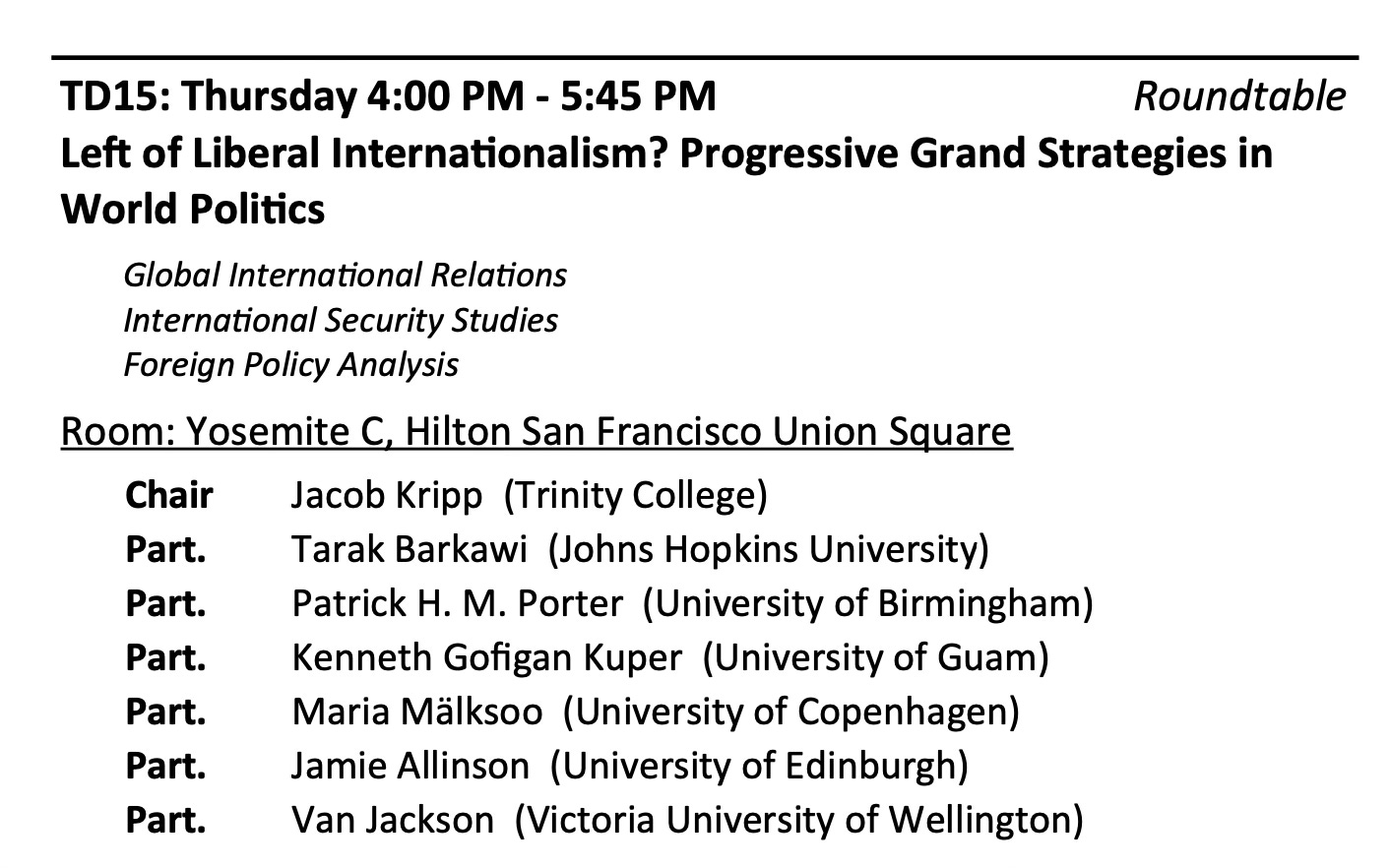Who’s Afraid of Anti-Militarism?
Some reflections on one of my public appearances in the US, and the political coalitions that resist taming geopolitics.
Amid my various recent speaking engagements across the US, I appeared on a roundtable panel at the International Studies Association’s (ISA) annual conference, in San Francisco. Unlike most panels at academic conferences, this one was explosive, high-friction, radically contentious, and, in my view, a lot of fun.1
The roundtable was also quite unusual, perhaps even unprecedented, in that the topic was literally about my research on progressive grand strategies. I did not arrange this panel, and it was not my brainchild. Tarak Barkawi at Johns Hopkins University organized everything and suggested it to me, with this blurb for what the roundtable would be:
What would left or progressive grand strategy look like in the Post-Post Cold War World? Following on from Van Jackson's article and forum on this theme in Security Studies, the panelists on this roundtable debate the possibility and the content of left-oriented strategic thought in contemporary world politics. The Anglo-American tradition of grand strategy has been dominated by realism and its liberal critics. Yet, during the short Twentieth Century, rich traditions of anti-imperial and communist strategy won notable victories against the West and its strategic and military thinkers. Meanwhile, environmentalists, labor activists, supporters of indigenous rights and others have continued to develop insurgent traditions of effective non-violent activism, and anti-capitalist movements and parties have occasionally seized state power. How might these developments and thinkers help us politically broaden the right leaning tradition of strategic thought? What would a body of progressive strategic thought look like for these new times? What agents might carry it out?
Barkawi also selected/invited each of the participants, except for my buddy Ken Kuper.
I don’t recall any of us really answering the key questions in the panel summary: How might [left-aligned] thinkers help us politically broaden the right leaning tradition of strategic thought? What would a body of progressive strategic thought look like for these new times?
Why does that matter?
I don’t know, maybe it doesn’t. But every participant in the roundtable simultaneously praised my research (thanks!) and critiqued some aspect or another of the progressive, antimilitarist worldview (thanks?). The thing unifying the panel was the Festivus airing of grievances about American progressivism (including, somewhat, from me).
The packed audience was, I think, taken aback.
I heard from a couple people later that the roundtable was popcorn-eating fun, but they thought it was going to be a celebration of my work, so they weren’t expecting fireworks.
I sure was. Why? Well, if you know the backstory on how the roundtable came to be, or even who the participants were, you’d know I was walking into something of a firing squad—and that was the point.




